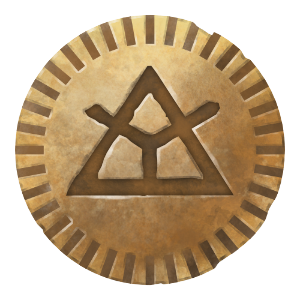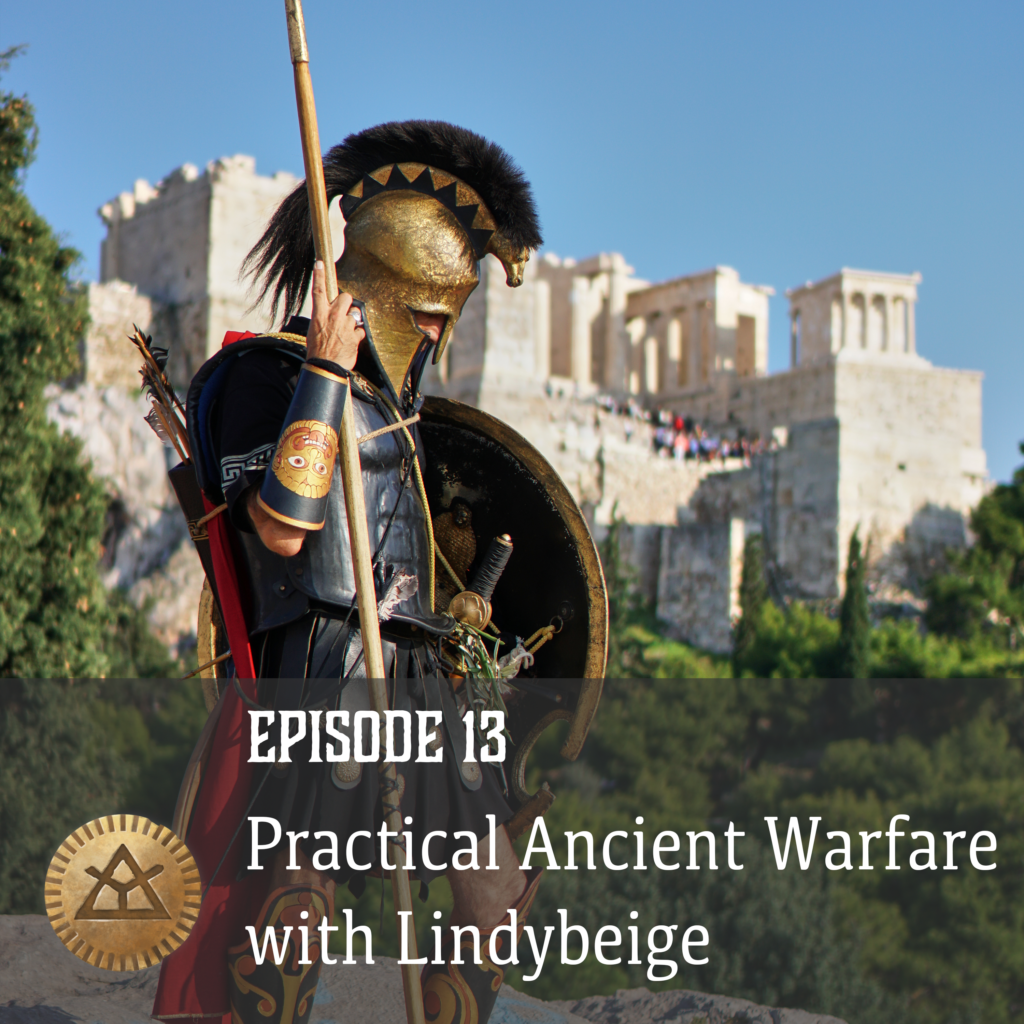
Our guest for episode 13 is Nikolas Lloyd, the multi-talented host of the Lindybeige YouTube channel.
News

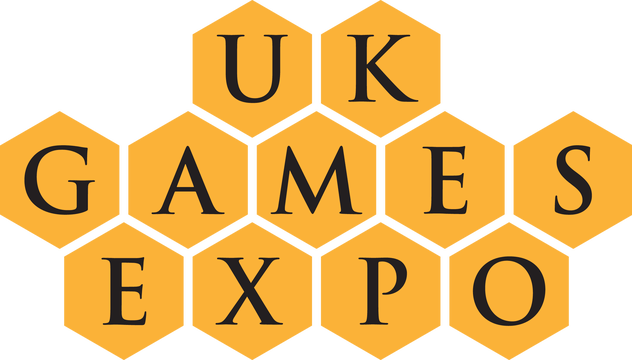
Jörg mentions Eternal Convention at Castle Stahleck in Bacharach, Germany, and the UK Game Expo which both just ended at the time of recording.
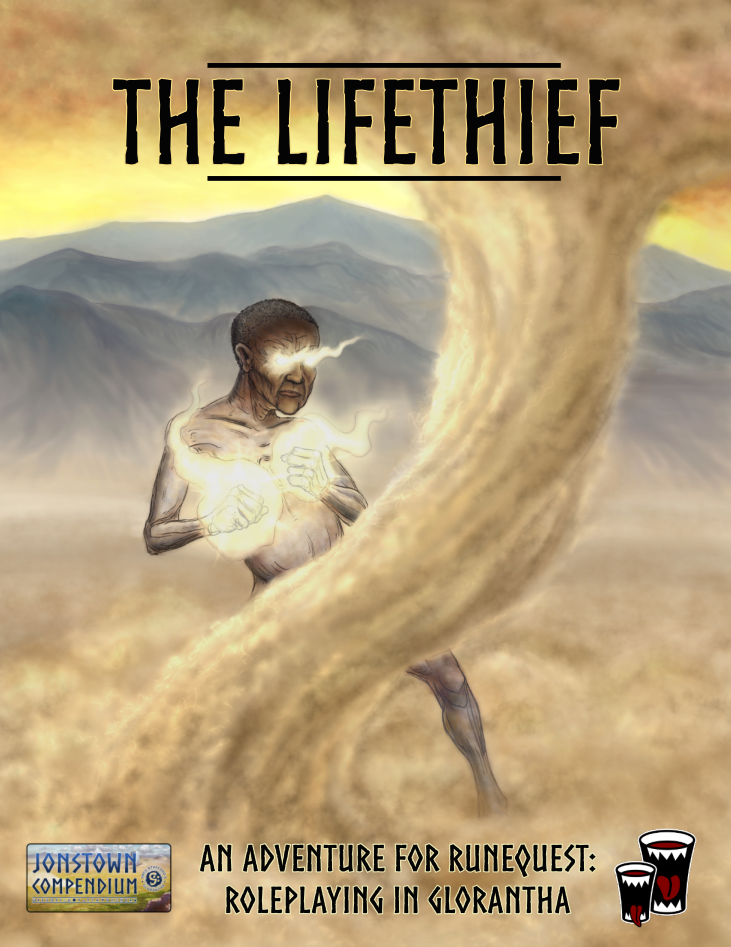
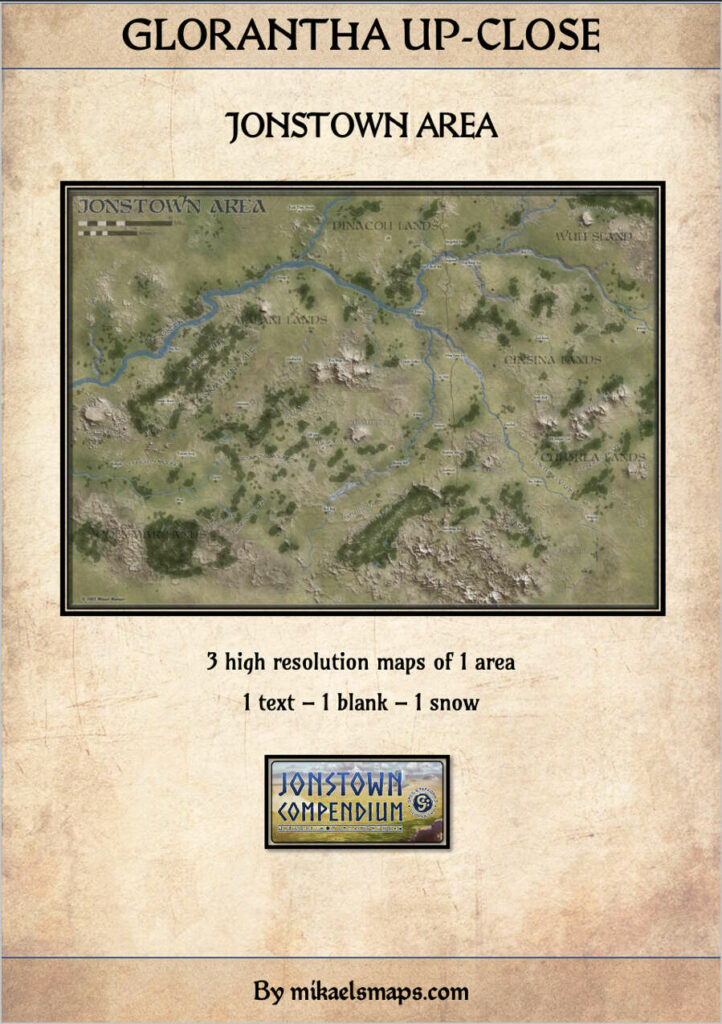
On the Jonstown Compendium we had The Lifethief, a scenario by the Beer With Teeth collective, and an overview map of the Jonstown area by Mikael Madsen.
Practical Ancient Warfare
There are more than 600 videos on the Lindybeige channel, many of these dealing with “lots of swords and spears”, and quite a few clarifying questions that arise from playing RuneQuest in Glorantha.
Lloyd started roleplaying at age 12 or so playing the typical dungeon raids and realizing the plot holes like why are there monsters hiding behind doors to jump at exploring adventurers guarding treasure chests. A few years later he came across RuneQuest and appreciated its approaches and how they helped playing in a more believable world.
We forgot to talk to him about his legendary “Prax Warrior” video, too, which you can see here:
(the story behind this video is explained in its description)
The praises of RuneQuest in its second edition are sung. They are still the same great points as in Lloyd’s series of videos on D&D from eleven years ago. Part one is below, but check out part two and part three too:
Lloyd talks about the Dragon Pass board game, and how he never managed to find opponents to play the full game with all the magic, the alliances etc. We also talk briefly about Glorantha: The Gods War, for which Lloyd made an extensive video review:
Ludo talks about the realism of combat systems and melee weapons, and the strike rank approach in RuneQuest. Lloyd describes the “dagger vs. pike” situation, and offers a house rule assigning a different weapon strike rank for fist range fighting.
The reality of disengaging aka running away without getting stabbed in the back, which seems to be a lot easier in real life than in most rpgs.
Ludo brings up the footwork rules in GURPS, and we talk about using terrain, maneuvers, and magic, especially spells like Lightwall that enable a side to regroup without the opponent knowing about it.
Lloyd mentions how keeping track of all the magic that may enter a melee can be a challenge for a GM in RuneQuest.
We talk about the usefulness of shields and parrying missiles, and house-ruling those situations.
Lloyd discusses the importance of the GM’s eye-contact with the players in role-playing and how playing online takes a lot of that unspoken communication away even in a video chat.
We discuss active use of shields in combat, character expertise over player expertise,
On the topic actual experience of fighting in a shield wall, we learn that individual prowess matters a lot less. Lloyd discusses the death-defying attitude in re-enactment battles and suggests that facing the same situation when it is your life on the line may involve a lot more visceral fear. As you might expect, you can learn more about shield walls on Lloyd’s channel:
Lloyd talks about group coordination topping individual melee expertise, the importance of maneuvering and initiative, and how one can make a difference in group combat even without actually stabbing or slashing at the foe just by positioning yourself.
The ideal fight should not be a slogging match where you stab the other guy but to achieve an objective like crossing a bridge or capturing a flag.
The tendency to fight to the bitter end seems to be ingrained in roleplaying combats, and the fear of a certain type of players (and game systems catering to their style) to lose the items that make them effective.
Jörg asks about the practicalities of offering ransom in the middle of a melee. The answer seems to be to let go of your weapons, raise your hands and shout the amount of money that you are worth, but without any guarantee that the opposing side will accept that, even if that is the accepted outcome. In the end, this is up to GM discretion, table consensus, and dramatic effect.
Talking about setting a scenario in a major battle, Lloyd mentions about his work on a book on the Trojan War for D&D 3.5 but the D20 license was discontinued and adapting the project D&D 4th edition. He discusses a couple of approaches, like having the outcome sort of pre-determined.
If the side the player characters fight on is going to lose, the objective of the game is not to win that battle but how the unit of the players performs, whether they distinguish themselves in the battle or what losses they suffer.
There is the possibility of pushing the player characters into the situation that decides the outcome of the battle, but that can often be contrived and needs some setting up.
Lloyd talks about giving the players an objective other than winning the battle, like a detached raid around the battlefield against the train or camp of the foes to recover a maguffin.
We discuss actually playing out the war-game inside a roleplaying session, and Lloyd says that this approach needs a lot of practicing and necessitates a couple of bad games before getting the hang of this.
Lloyd talks about the constants in ancient warfare, with the basic concepts remaining the same like spears, shields, or signalling through shouts, insignia, drums or horns.
The difference made by magic on the battlefield is a lot higher than any technological differences. Also magical development may replace technological development.
Are old people in Glorantha really healthy? What is the availability of high powered healing or restoration magic?
How do people allocate their magical resources? Ludo introduces spreadsheets for administration of available magics.
Reputation as a spring-board to drama.
Skill proliferation vs. nifty new skills, on the example of a “read battle” skill (which sounds like a good interpretation of how to use RQG’s Battle skill).
Are different weapon type skills necessary? Lloyd suggests a general melee skill independent of the weapon type.
What is a “broad sword”?
Bronze weapons, and limitations real world bronze has.
The importance of tin in the Bronze Age, and using its control and supply chain as plot hooks.
Ludo mentions Lloyd’s video series on slings, the first one of which is here:
Contriving situations where groups of five characters can make the difference, again and again and again…
Lloyd points out that skipping ahead to avoid tedious routines of standing watch etc. so that the bad guys don’t catch up with the players is giving out unintended information that no, the bad guys aren’t going to show up now.
He talks about doing flashbacks to establish still unknown relationships, and how “you can’t die in a flashback” may spoil the suspense for some players who prioritize survival.
Ludo suggests to have players roll the doomed assault of NPC fighters and experiencing their deaths in between playing their less combatant main characters.
There are two main types of action scenes: fights and chases, and most role-playing games dedicate entire chapters on combat but hardly any space on chases. And even if you have rules for chases, those might be about catching and fighting the opponents and not overtaking them in a race.
More about Lindybeige
You can find Lindybeige:
- On his website (with a little bit of RuneQuest stuff here)
- On his YouTube channel
- And probably out there in a field waving pointy things around!
Credits
The hoplite picture is Creative Commons. The intro music is “The Warbird” by Try-Tachion. Other music includes “Cinder and Smoke” and “Skyspeak“, along with audio from the FreeSound library.
Podcast: Play in new window | Download (43.9MB)
Subscribe: Apple Podcasts | Google Podcasts | Spotify | RSS | More

